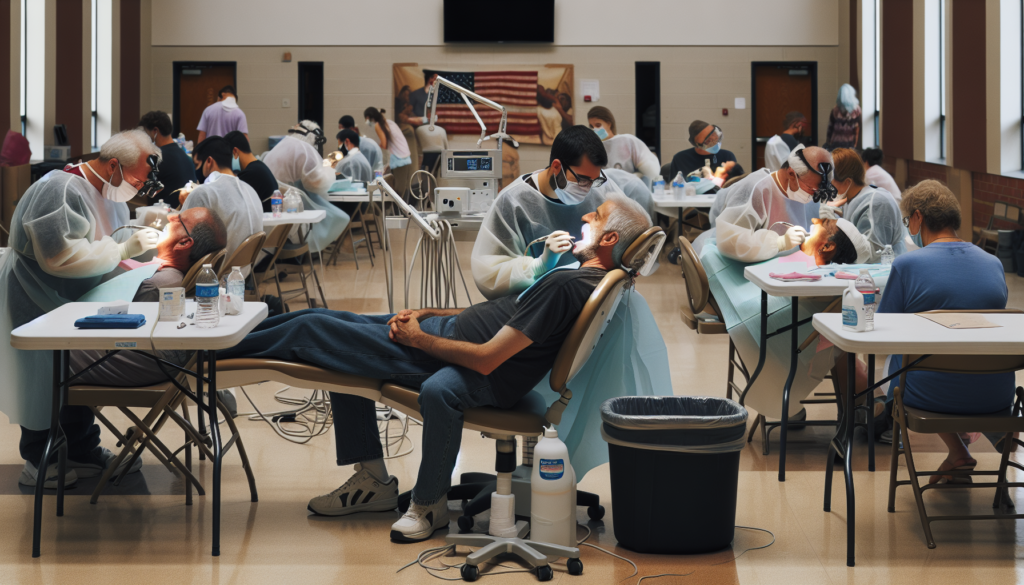Supporting Farmworkers with Compassionate Healthcare Initiatives in North Carolina
In the heart of North Carolina’s thriving agricultural regions, farmworkers are the unseen heroes who put fresh produce on our tables every day. Despite their essential contributions, many of these hardworking individuals face significant challenges in accessing basic healthcare and dental services. Recognizing this need, healthcare leaders and educational institutions—like East Carolina University’s Brody School of Medicine—have been bridging the healthcare gap through mobile clinics, outreach programs, and compassionate care initiatives. These efforts are helping farmworkers receive the respectful, human-centered healthcare they deserve.
Understanding the Healthcare Needs of North Carolina’s Farmworkers
Farmworkers are vital to North Carolina’s economy, yet they often endure high-risk jobs, long hours, and limited access to medical services. Many face barriers such as lack of insurance, transportation difficulties, language differences, and fear of job loss. These issues collectively contribute to delayed treatments and unmanaged health concerns, from chronic illnesses to dental problems.
- High risk of occupational injuries: Daily exposure to pesticides, extreme heat, and physical labor makes medical support essential.
- Limited healthcare access: Remote work sites and mobility challenges reduce opportunities for preventive care.
- Language barriers: Many farmworkers are non-native English speakers, making communication and education about health practices more difficult.
“Farmworkers play a critical role in our state’s economy, yet they often have the least access to healthcare services.”
— East Carolina University News
Mobile Clinics Delivering Care Across North Carolina’s Farmlands
To meet farmworkers where they are, ECU’s Brody School of Medicine and its community partners introduced mobile health clinics that travel directly to farms and rural communities. These clinics provide not only medical assessments but also dental services, vaccinations, preventive screenings, and chronic disease management. The goal is simple yet profound: bring compassionate, consistent healthcare to those who sustain our food supply.
- On-site medical care: Physicians and dental professionals conduct examinations, offer medications, and treat minor conditions without requiring travel into town.
- Preventive focus: Oral health education, hygiene kits, and routine screenings support long-term wellness.
- Community-building: Farmworkers gain trust in healthcare professionals who understand their unique lifestyles and challenges.
These mobile units serve as bridges—removing geographic, financial, and cultural barriers to create healthier, more connected rural communities.
Culturally Sensitive and Bilingual Healthcare Support
Effective healthcare depends on empathy and understanding. Many outreach teams across North Carolina emphasize cultural sensitivity and bilingual communication, ensuring that every patient feels seen and respected. Bilingual healthcare workers translate medical terminology, explain treatment steps, and provide a comfortable environment for patients who might otherwise hesitate to seek care.
This approach extends beyond language. Cultural competence means understanding traditions, values, and fears within the migrant population. By embracing these nuances, healthcare professionals build trust that fosters improved patient outcomes. Compassionate communication is often the first step toward improved overall wellness.
Empowering Medical Students through Community Engagement
One of the most inspiring aspects of North Carolina’s healthcare outreach is the participation of medical and dental students in real-world care initiatives. At ECU’s Brody School of Medicine, students gain hands-on experience serving farmworker communities, learning how public health challenges unfold at the ground level.
- Educational impact: Students cultivate empathy and leadership through meaningful service.
- Mutual learning: Farmworkers learn about preventive care while students learn about resilience and cross-cultural communication.
- Future-ready professionals: This synergy helps develop healthcare leaders committed to serving underserved populations.
By engaging tomorrow’s clinicians in community care today, ECU instills values that can transform the healthcare landscape for generations to come.
Building Sustainable Partnerships for Farmworker Health Equity
True sustainability in healthcare relies on collaboration. ECU’s initiatives work in tandem with local nonprofits, government agencies, and farm organizations to ensure that programs reach deeply into rural ecosystems. These partnerships help fund mobile units, train volunteers, and provide consistent monitoring of community health needs.
- Partnering for growth: Collaborative efforts leverage local resources, creating a stronger safety net for vulnerable populations.
- Policy advocacy: Data gathered from on-the-ground work shapes future health policies and rural health research.
- Long-term equity: Health access is not a temporary project but a shared vision built to last.
The collective mission centers on fairness, dignity, and the belief that every person—regardless of their occupation or income—deserves quality care.
A Compassionate Model for Rural Health Transformation
North Carolina’s healthcare initiatives for farmworkers are more than temporary outreach—they represent a compassionate model of rural health transformation. By connecting education, empathy, and community-based service, these programs are redefining how healthcare reaches those who need it most. Dental professionals, primary care providers, and students alike are proving that compassion can heal more than physical pain—it can restore hope and confidence to those often overlooked.
As more organizations adopt similar approaches, the ripple effect will extend beyond healthcare into the realm of human respect and empowerment. When compassion drives care, everyone benefits—from families and farms to the larger community structure that supports us all.
Frequently Asked Questions
- What healthcare services are offered to farmworkers in North Carolina?
Farmworkers can access general medical care, dental exams, vaccinations, chronic disease management, and preventive education through mobile clinics and outreach programs. - How do mobile clinics help improve healthcare access?
Mobile clinics travel directly to farms and remote communities, providing necessary care on-site and eliminating transportation barriers for farmworkers. - Why is cultural sensitivity important in farmworker healthcare?
Cultural awareness fosters trust, helps providers offer appropriate care, and ensures that language barriers don’t prevent treatment or follow-up visits. - How are medical and dental students involved in these initiatives?
Students participate in outreach events, volunteer within mobile units, and engage farmworker families directly, gaining real-world experience while improving access to care. - What can local residents do to support these compassionate healthcare efforts?
Community members can volunteer, donate resources to outreach programs, or advocate for inclusive health policies that prioritize rural and migrant populations.
Post Disclaimer
DentalUp is for educational purposes only and cannot accept personal dental information such as x-rays, photos, or treatment details. See full disclaimer here.





